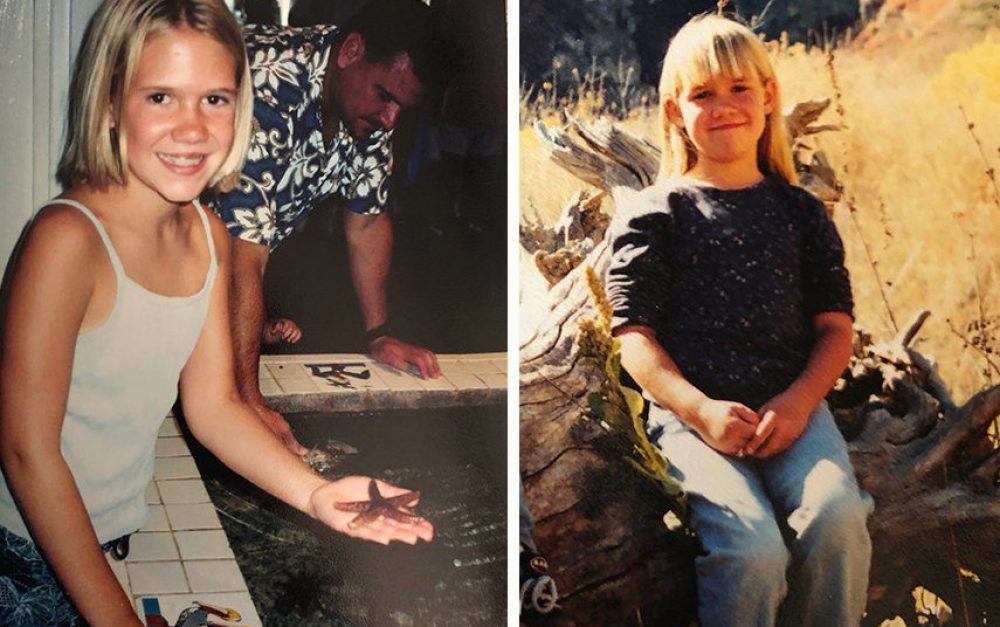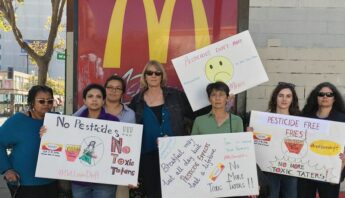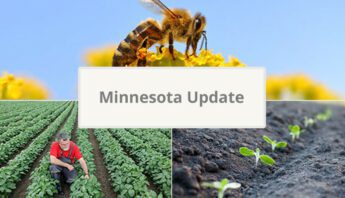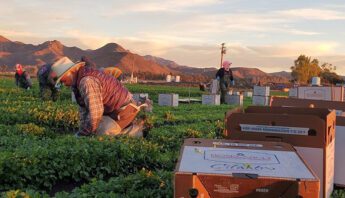As the new year begins, I’ve spent some time reflecting on the past 12 months and identifying intentions for the year ahead. What was I most proud of accomplishing in 2018? What had I learned that could enable me to do better in 2019?
As the new year begins, I’ve spent some time reflecting on the past 12 months and identifying intentions for the year ahead. What was I most proud of accomplishing in 2018? What had I learned that could enable me to do better in 2019?
As a member of PAN’s communications team, I oversee our blogging program. PAN bloggers write on specific issue areas that are important to them and their work. Many of my colleagues have such direct and personal ties to the work we do for a more just food & agriculture system: they grew up on farms in the Midwest, they are members of farmworker communities, or they are parents with concern for their children’s health and pesticide exposure. In comparison, my own interest in, and ties to, these issues feel less clear. In my New Year reflections, I asked myself . . . what brings me to fight for a more just food and agriculture system?
As I reflected on 2018, several key moments struck me — from this year and many years past. But I realize that changes in ourselves often happen so incrementally that you don’t appreciate them until you set aside the time to do so.
Looking back through the years, I remembered shifts in my learning and thinking that brought me to today’s fight for a more just food and agriculture system. This transformation started in school, growing up in in the coastal California town of Ventura:
Second grade: Pesticides aren’t good for kids. But I don’t know why, or if they’re even particularly “bad.” When they spray them on the orange groves next to school, we have to stay inside. They call our parents the day before to let them know we’ll be playing Heads Up 7-Up and reading for recess. But when my mom drops me off in the morning, I see the pesticide applicators in the fields already, and a few days after, there are dead gophers on the soccer field.
Spraying pesticides is dangerous!
Fourth grade: Pesticides ARE bad, or at least DDT is. It kills birds. Rachel Carson told me so when I read Silent Spring after I picked it for my famous women book report. I’m fixated on the image of eggshells being too thin and fragile for the baby birds inside to grow up.
We’ve got to keep bird eggs away from pesticides!
Seventh grade: Some trees are getting cut down by my house and I cry. My mom rolls her eyes. I win an art contest drawing tips on how to conserve water. I consider myself a radical environmentalist.
High school: My English class reads the Grapes of Wrath. Wow, farming sounds hard. Especially when success depends on so many things that are out of your control. Ventura/Oxnard has a lot of strawberry fields and I always see the farmworkers bent over the rows of fruit. It looks really hot and I don’t understand why they are wearing long sleeves. Our class goes on a field trip to pick strawberries at a local farm after we finish Grapes of Wrath to “experience a day in the life of a farmworker.” But, we work for about an hour and all get to take home flats of strawberries. I know this isn’t what being a farmworker is like, and feel bad about it.
I realize we must protect the earth from pesticides — and farmworkers probably benefit too, because it can’t be great for them to breathe in the stuff either!
First year of college: I really love food. Cooking, eating, reading about, etc. I’m a vegetarian. I start college as a nutrition major, and quickly despise all the science classes I have to take. I switch to international relations on the natural resources and environment track. I take a sociology class called “Social Problems,” and the topic for the whole quarter is food. I’m enamored with my professor, her lectures, the readings, the discussions we have, etc. I’m introduced to the “good food” movement and have the most basic understanding of it.
Monsanto is bad! Farmers should all farm organically. It’s simple!
Third year of college: I’m in a plant science class about agriculture and the environment. This is when GMO labeling is up for a vote. The professor asks who among us would vote to label GMOs. My hand shoots up and I am shocked when most of the rest of my class is sitting there with their hands down. This class is mostly classic agriculture majors. (The sustainable agriculture program was created the next year.) They are all planning to start farming after school. The following discussion reveals to me that I and the few other natural resources/environment students in the class have been in a bubble. These future farmers explain that labeling is undue regulation and, if something hasn’t been proven to be dangerous, we shouldn’t be scaring customers off and jeopardizing their profits “just in case.”
It would be great if farmers could stop using pesticides, but maybe it’s not that easy?
Grad school: I’m at an international graduate school in the environmental policy program. In my sustainable agriculture class, we’re doing work in small groups, trying to define what sustainable agriculture is. The woman I’m partnered with is a general international policy student, focusing on human rights and social change. We are debating what environmental health means. I know it means the quality and health of water, air and soil, biodiversity and habitat. My partner is frustrated, trying to explain environmental health to me in the context of human life and well-being, but none of my other classes really include the human aspect of environmentalism, including environmental justice and race, class, gender, etc. Her words resonate with me, and I start to read and think about all of these other facets of environmental health.
We should work to get pesticides out of the food system, not only for planetary health, but for human and community health!
Always learning: I’ll take a break here. Even though graduate school facilitated a huge shift in how I understood issues in food and agriculture, my education did not stop there by any means. Spoiler alert, after grad school I was hired at PAN, and I feel like in some ways I’ve grown more in the past two and a half years working here than I did from 2nd grade to graduation. You’ll get to read all about that in the next installment of this story, but in the meantime can I challenge you to try and identify key moments where your thinking has shifted? Have you thought back on something you’ve said or an opinion you’ve held and said to yourself, “How was I so blind to the other parts of this issue?” Try it! It’s humbling — and also empowering — to be able to quantify how much you’ve evolved.







